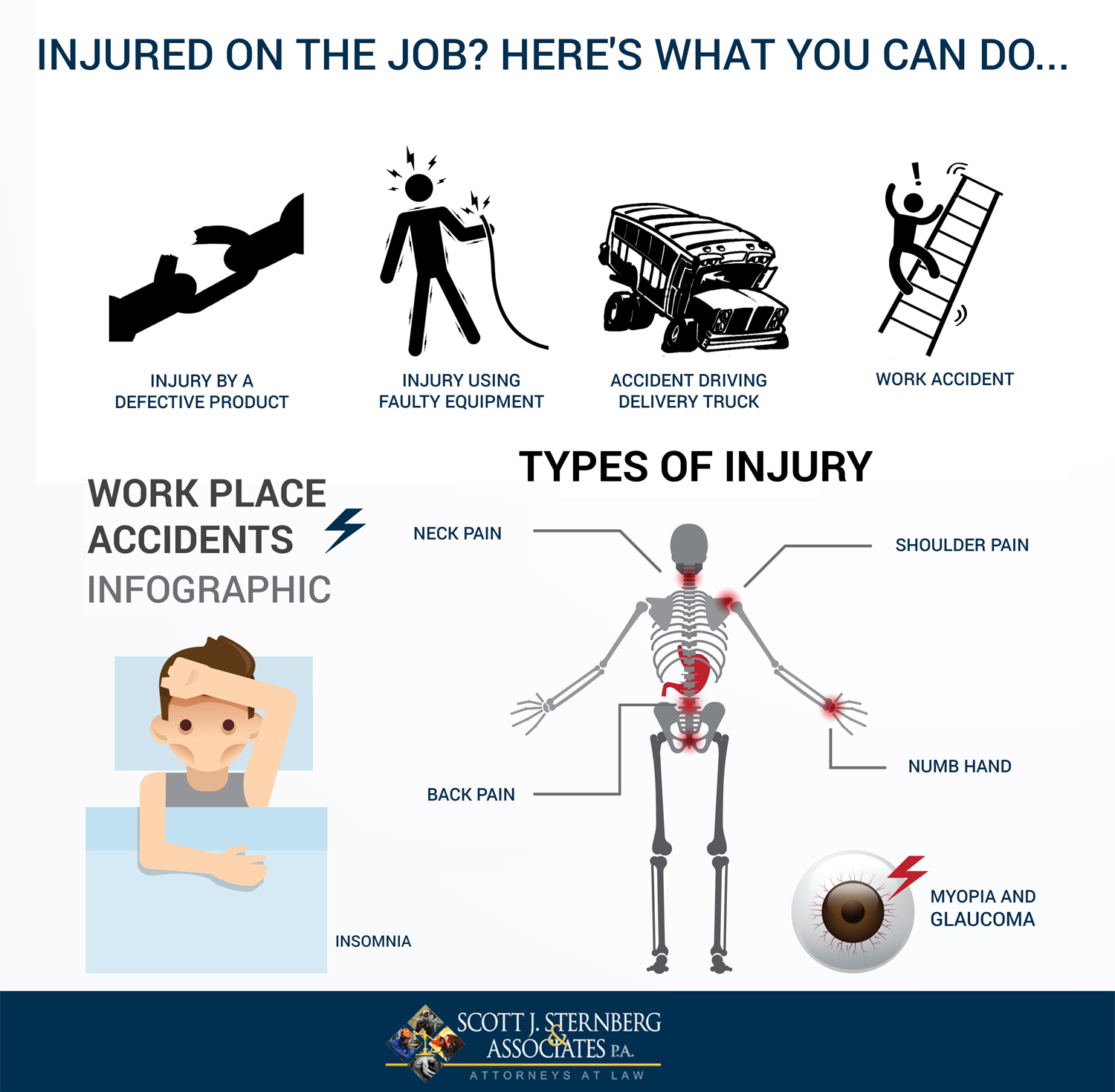If you are injured while working, then you are entitled to receive workers’ compensation benefits—regardless of who was at fault for your injuries.
This system is generally more beneficial to both employees and employers as both parties receive certain benefits. In most cases, by accepting workers’ compensation benefits, you are precluded from bringing a lawsuit against your employer.
You may, however, be able to bring a lawsuit against another company or person even if you file a workers’ compensation claim, if the following occurred:
- Your injury was caused by a defective product
- You were working and using faulty equipment
- You were making a delivery in your company’s delivery truck when someone else negligently caused an accident and you were injured
Steps to Filing for Workers’ Compensation Benefits
1. Report Your Work-Related Injury Immediately: This step is probably the most important—second to seeking medical attention, if your injury is severe. You may report your injuries to your direct supervisor. All work-related injuries should be documented.
Of course, if you are physically unable to report the injury to your boss, obtain medical attention first and foremost. Then, if someone else has not yet informed your employer, inform him or her yourself. You should always check with your employer as soon as possible to make sure they know about the accident.
2. Obtain a Workers’ Compensation Claim Form: The moment your employer is aware of the accident, you should then obtain a workers’ compensation claim form. Remember, no employer is obligated to pay for your benefits until a completed claim form has been completed and circulated.
This claim form allows you to explain in your own words what happened, how you were injured, where it happened and what injuries you suffered. Also, it is important to remember what you wrote on the form so as to stay consistent when you receive medical treatment.
After your employer receives your completed claim form, he or she will then notify the company’s workers’ compensation insurance company. Then, you can then arrange for your medical evaluation and treatment through one of the insurance company’s preferred health care providers.
3. Receive Medical Treatment: Assuming you are able to complete the above steps before seeking medical treatment, you should then seek medical treatment for your injuries and for the appropriate time off from work in order to recover.
You should never let your employer bully you back to work before you are physically able to do so. In fact, returning to work will often involve a physician submitting official documentation to your employer and/or their insurance company clearing you to return to work.
4. Call a Workers’ Compensation Lawyer: Many employers are often troubled by workers’ compensation claims. This is because no employer wants an injury on their hands—no matter how minor severe. A claim will cost them time and money, and they are also out a staff member for undetermined amount of time…putting them at a huge loss and/or inconvenience.
Some employers take it to a whole other level and treat employees unfairly after an accident. If you sense that you will be terminated or discriminated against because of your injury and claim for benefits, then it is important to contact a workers’ compensation lawyer to discuss your situation and what you can do about it.
Also Read : A Quick Guide to Estimating Workers’ Compensation Benefits
A Consultation With an Experienced FL Workers’ Compensation Attorney
The workers’ compensation system provides a supposedly easy method for employees to receive compensation for work-related injuries. But it can still get pretty complicated. If your claim is denied or you fail to receive compensation, you may need a reputable, knowledgeable FL workers’ compensation attorney to assist you in this matter.

